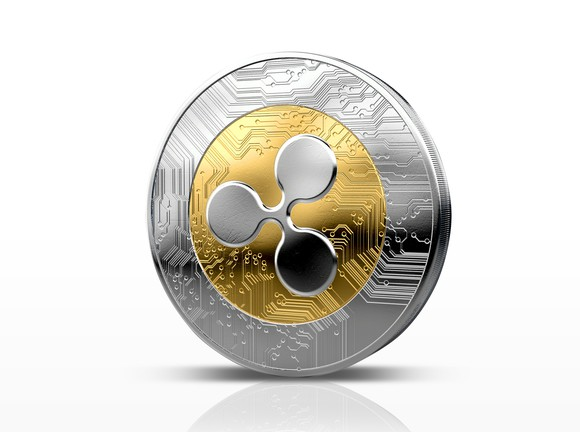PoW or PoS: what is the difference between mined and not mined cryptocurrency
Cryptocurrencies can be divided into two types: those that can and should be
mining, i.e. mining (bitcoin, ether, litecoin, Monero), and
pre-created (Ripple, Stellar, Cardano, EOS, NEO). Tell,
what is the difference and what are the advantages and disadvantages of each group.
What is the basis of both types of cryptocurrencies?
Although they differ in the method of generation, the basis of both types of cryptocurrencies
the same: check. Ultimately, each transaction processed
the network needs to be checked by someone to ensure that the virtual
the money was not spent twice. In fact, we're talking about the difference in
verification process. Transaction groups are merged into a block after validation
the block joins other previously confirmed blocks, creating
a chain of true transactions, or blockchain.
PoW: Extracted cryptocurrencies

Mining is the process by which individuals, groups or companies use powerful computers to solve complex mathematical equations to test blocks of transactions. These math problems are part of the encryption process that protects transactions from cybercriminals and third-party access.
The first one who successfully solves the problem and signs the transaction block receives a reward. As you know, in the Proof of performance (Proof of work) model, the block reward is paid in the same currency, the transactions with which are checked. The miner, who confirmed the block of transactions in the Ethereum network, will receive a reward in the air. Miners earn by investing this cryptocurrency and selling it later, or immediately converting into ordinary money.
Disadvantages of the mined cryptocurrency
Mining has certain disadvantages. It can be very expensive because of the large amount of electricity consumed. In the produced crypto currency the smaller the capitalization, the competition is usually lower than in bitcoin (Bitcoin) or ether (ETH/USB).
For bitcoin mining requires specialized ASIC chips, combined into a huge farm. Electricity is one of the main expenditure items of these projects, which is why China, with its relatively cheap electricity, has become home to four of the world's five largest bitcoin mining farms.
In addition to electricity costs, mining firms have to spend a lot of money on new equipment that is obsolete in a few months.
In addition, large projects require additional cooling because servers and graphics cards are heated to high temperatures during operation.
How to calculate the profitability of mining
The Proof-of-Work model is potentially vulnerable to a 51% attack. (a group of people with 51% of the computing power gains control over the network and its members.) For popular cryptocurrencies such as bitcoin, ether, litecoin (LTC/USD) and Monero (XMR/USD), this is not a problem because of their large size. However, smaller cryptocurrencies with long block processing times and low daily volumes are at risk of this attack.
PoS: Not mined cryptocurrencies

At the other end of the spectrum are pre-created cryptocurrencies such as Ripple (XRP/USD), Stellar, Cardano, EOS (EOS/USD) and NEO (NEO/USD).
They use the Proof-of-Stake model (ownership share proof). For such cryptocurrencies do not need heavy-duty computers, and participants do not compete with each other for the right to sign the next block. Thus, the costs of this approach are much lower. Check transaction involved the owners of the cryptocurrency. It looks like this: the more cryptocurrency you have, the longer you own it, the higher the probability that you will be chosen to check the transaction block.
The system has built-in certain mechanisms that prevent the dominance of large cryptocurrency holders over the verification process. There are many random ways to select owners who are eligible to sign a transaction block. This ensures that small holders have a chance to participate in the process.
In addition, the remuneration for the method Proof-of-Stake is charged in another way. Instead of the generated coins, the signatory receives the block's aggregate transaction fees. They may be less of a reward in the case of mining currencies, but the cost of this method of verification is much lower.
Disadvantages of the not mined cryptocurrency
Given the much lower cost of the Proof-of-Stake method, it can be determined that this is a more progressive way of checking transactions. However, it has its drawbacks.
For example, such cryptocurrencies are not threatened by an attack of 51%, but it is replaced by another trouble — a person who has 51% of all tokens in circulation, can gain control of the network and its participants. Of course, in the case of cryptocurrency with the highest market capitalization of the probability of this scenario is low, however small the counterparts may be affected by this vulnerability.
It is also worth noting that the Proof-of-Stake model gives large owners additional votes in determining the further development of the network. For example, most NEO tokens belong to several founders. This helps to increase the speed of transactions and reduces the time to reach consensus, but also makes the cryptocurrency too centralized. In other words, in the Proof-of-Stake model, large players gain significant power, which is theoretically impossible in the Proof-of-Work model.
Which method is better?
Both methods have their pros and cons. But there is one important factor that has not yet been addressed. Eventually, some of the biggest mined currencies (e.g. bitcoin) will reach their token limit. At this point, they will have to switch to Proof-of-Stake. Since it significantly reduces the consumption of electricity and does not require such high computing power, gradually all cryptocurrencies will move to the shortage model.
Translated from russian community "Крипточайник" by Damir Koshkarov
Nice article, very in-depth! I don't really like either method, PoS or PoW because:
I feel like what Steem uses, DPoS (Delegated Proof of Stake) works much better. It allows users to vote on who gets the rewards and gets to confirm the blocks, and measures what people think of the 'miners', not the amount of money they have.
I'm definitely upvoting and following you!
@shredz7
Thank you for your opinion,I absolutely agree with you and indeed system work steemit much better represented options.The purpose of the article was to broaden the horizons of readers, thank you again